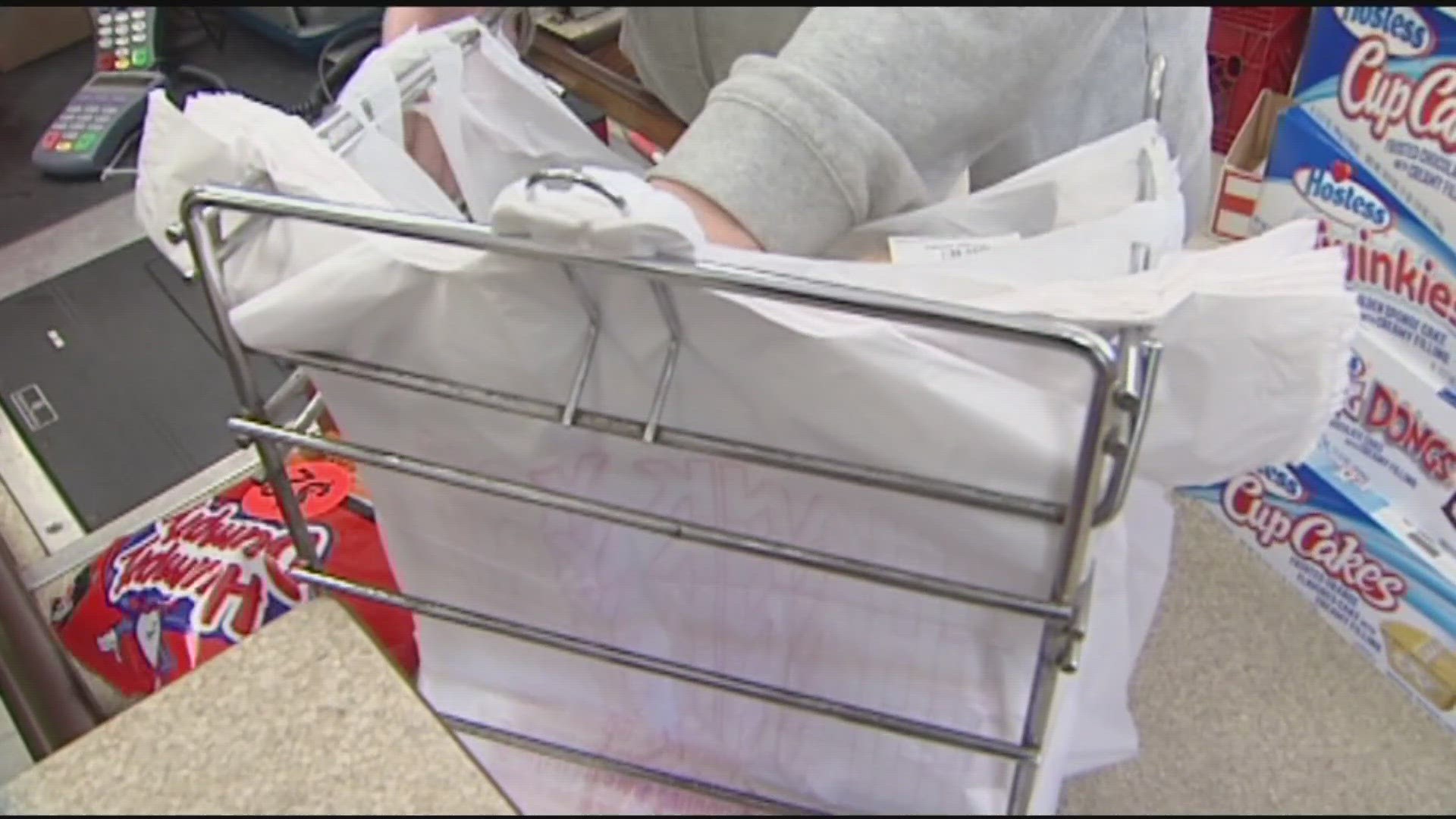ST PAUL, Minn. — Minnesota lawmakers are debating a piece of legislation that would return control of retail plastic bags to cities and counties.
Rep. Sydney Jordan, a Minneapolis Democrat, wants to repeal a 2017 state law that bars local units of government from banning single-use bags, including plastic grocery bags. For Rep. Jordan, it's a matter of reducing the amount of plastic waste in the environment.
"The average American uses on average about 365 plastic bags per year. The average Dane in Denmark uses four," Jordan told KARE.
The Minneapolis City Council in 2016 voted to ban single-use bags in most retail establishments and set the effective date as June 1, 2017. But the ban never went into effect, because it was blocked by state lawmakers.
During the 2017 Session, the Legislature passed a bill preempting localities from enacting bans on retail bags. The Minneapolis Council eventually passed an ordinance requiring retailers to collect a recycling fee of 5 cents per bag.
"This bill doesn't enact any sort of ban," Jordan explained. "It would be up to local cities and counties to create their own ordinances."
When Jordan presented her bill in the House State and Local Government Committee Tuesday, Republicans pushed back against the idea.
"When I passed my bill, it was the ban-ban, and now we are on the ban-ban-ban. I feel like we're in a Flintstones cartoon with Bamm-Bamm," Rep. Jim Nash, the Waconia Republican who led the preemption effort in 2017, told colleagues.
"This is not going to fix the problem. The problem is in people who are lazy and throw things out the window or don't do their job properly."
Rep. Bobbie Harder, a Henderson Republican, said she normally would support the idea of more local control. But she's opposed to giving cities the power to ban bags.
"If cities and counties enact different ordinances, I see confusion for the consumer. And if they’re upset, they’re not gonna come to city or the county they’re going to go to business owner."
The committee chairperson, DFL Rep. Ginny Klevorn of Plymouth, said she spent years living in Sao Paulo where a strict plastic bag ban was in use. She said people became accustomed to bringing their own containers with them.
"The grocery stores still functioned. We were able to bring our groceries home. And people knew they'd need to bring a cardboard box, a market basket or something to bring their groceries home."
Rep. Jordan told KARE she believes Minnesotans likewise would adapt to dealing with different rules in different parts of the state.
"I think Minnesotans are smart and they already navigate patchworks of laws as they move from city to city, or county to county," Jordan explained. "For example, speed limits change when you cross a county line or city line."
Jamie Pfuhl, the president of the Minnesota Grocers Association, said having a patchwork of ordinances would create competitive disadvantages for some grocers because they've no longer be on an even playing field.
"Operating in an environment of varying local laws will cause customers confusion and has the potential to have inequitable effect on those that do not have the same ability or access as others within our communities."
Pfuhl pointed to the plastic bag recycling bins available in most stores, which keeps tons of bags out of landfills. She noted that those bags aren't accepted in curbside recycling programs.
"It’s a convenient drop spot," she said. "Millions of pounds of plastic are recycled annually by your local grocers."
Jordan said those voluntary recycling programs are only catching a fraction of the plastic bags, so they end up on the streets, in landfills, or placed by mistake in curbside recycling bins.
"The best estimate for that is it’s far less than 10 percent of all plastic bags are recycled in Minnesota. And plastic bags are not infinitely recyclable – the plastic degrades over time and becomes micro plastics, and that gets in the water and eventually our bodies."
The committee decided to lay the bill over, which would allow it to be folded into a larger, catch-all bill later in the session. Retailers say they'll keep pressing for a uniform rule on bags that covers the whole state.

